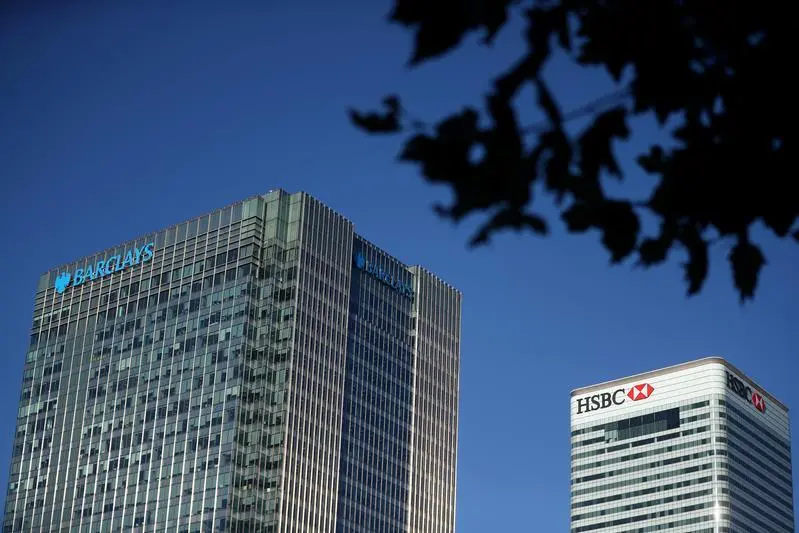PHOTO
LONDON- HSBC's top executive in Asia has signed a petition backing China’s imposition of a national security law on Hong Kong, an online bank post said on Wednesday, breaking years of political neutrality for the UK-based, Asia-focused lender.
Asia-Pacific Chief Executive Peter Wong signed the petition and HSBC itself "respects and supports all laws that stabilize Hong Kong's social order", the bank said in the social media post.
HSBC has not weighed in on the political situation in the former British colony in recent months, but has faced increasing calls in Chinese state media to make its position clear.
A Hong Kong-based spokeswoman for the bank declined to comment beyond the contents of the post.
Wong, a member of the Chinese People's Political Consultative Conference, a political advisory body in China, told the official Xinhua news agency in an interview published on Wednesday he hoped the law could bring stability to Hong Kong.
Hong Kong is HSBC's most important single market and the lender has invested billions of dollars in China in recent years in a bid to grow its market share in the world's second-largest economy.
But it has been increasingly difficult for the lender to toe a studiously apolitical line in the Asian financial hub in recent years, facing criticism from both the pro- and anti-Beijing camps.
HSBC was briefly caught up in Hong Kong’s months-long anti-government protests, with some of its branches vandalised and the famous bronze lion statues outside its headquarters defaced during a protest march on Jan. 1.
Some protesters accused HSBC of being complicit in action by the authorities against activists trying to raise money to support protesters, accusations the bank denied.
Former Hong Kong leader Leung Chun-ying meanwhile last week criticised HSBC for not supporting Beijing over London in the spat.
Some of HSBC's corporate peers have faced swift retribution from Beijing for their perceived support for the anti-government protesters.
Cathay Pacific Airways 0293.HK last year was forced to suspend staff involved in the protests, and chief executive Rupert Hogg and his top deputy resigned in August amid the turmoil.
AUTHORITARIAN
Hong Kong returned to Chinese rule in 1997 with the guarantee of freedoms, such as an independent legal system and right to protest, not enjoyed on the mainland.
The city was rocked by sometimes violent pro-democracy, anti-China unrest last year by protesters fearing an erosion of those freedoms by Communist Party rulers in Beijing.
China denies the accusation and accuses the West of stirring up trouble.
The bank's statement came as tensions rise between London and Beijing after British Prime Minister Boris Johnson said the UK would not walk away from the people of Hong Kong if China imposed the national security law.
Britain has called the law "authoritarian" and said it is in breach of the "one country, two systems" principle enshrined in the 1984 Sino-British Joint Declaration and that it conflicts with Article 23 of Hong Kong's Basic Law, or mini-constitution.
Jardines Group, one of Hong Kong's original foreign trading houses, published a full-page statement in the pro-Beijing newspaper, Ta Kung Pao, saying it was important to enact a legal framework to safeguard the city's national security.
"It can ensure that Hong Kong continues to absorb investment, increase job opportunities and guarantee people's livelihood," Jardines said.
The group's flagship company, Jardine Matheson Holdings, is listed in Singapore.
(Reporting by Sumeet Chatterjee and Noah Sin in Hong Kong and Lawrence White in London, editing by Sinead Cruise and Nick Macfie) ((lawrence.white@thomsonreuters.com; +44 207 542 6137; Reuters Messaging: lawrence.white.thomsonreuters@reuters.net))





















